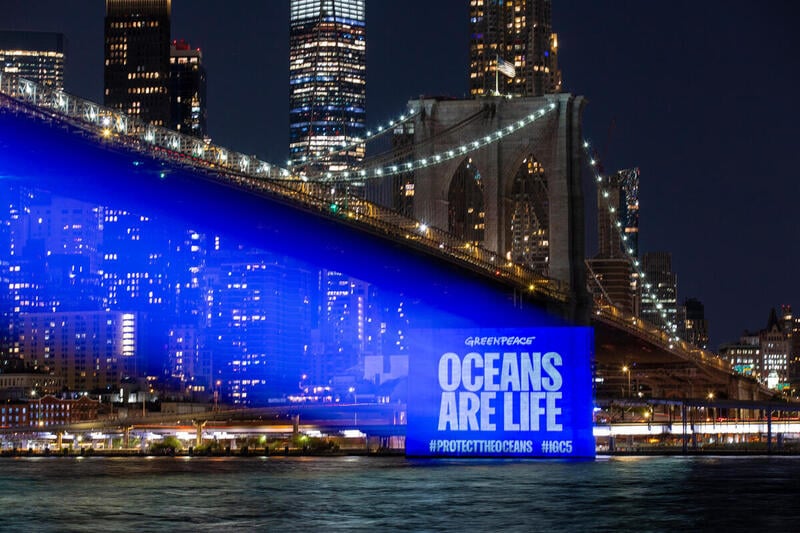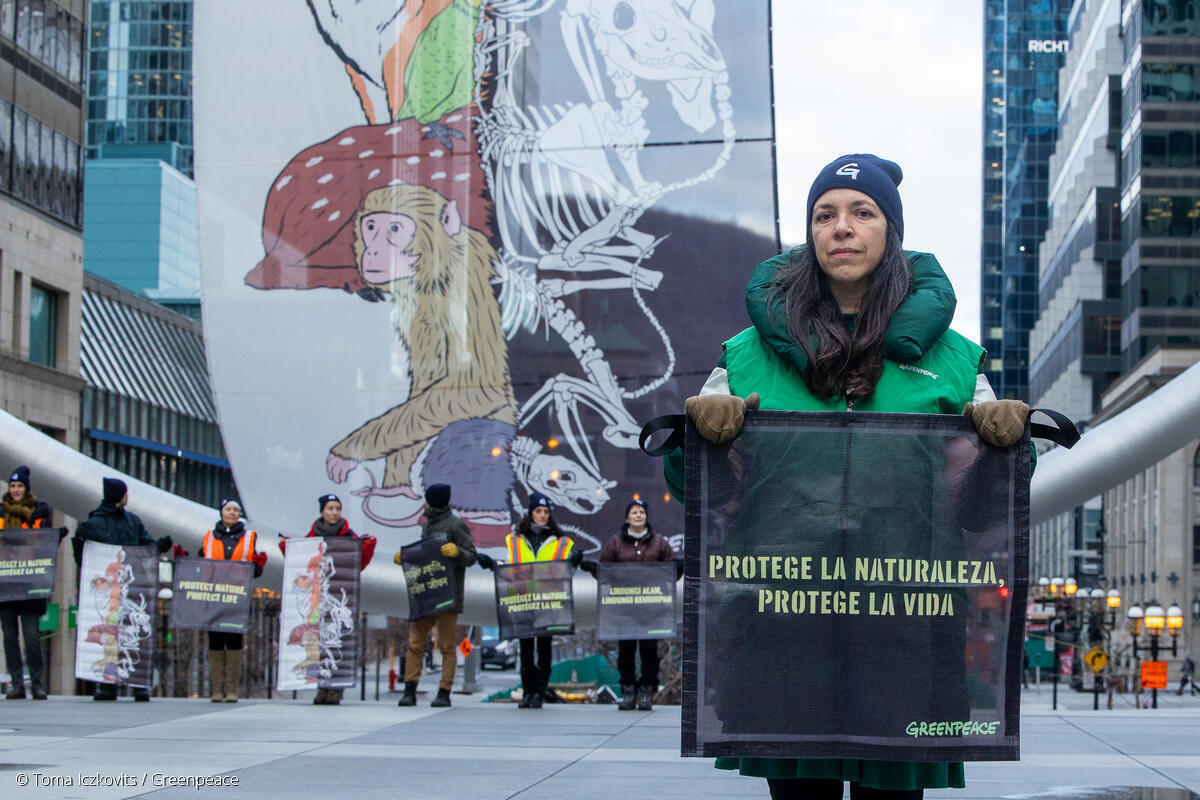Vancouver – The fourth round of negotiations towards a Global Ocean Treaty conclude at the UN Headquarters in New York on Friday 18 March.[1]
In response to progression in negotiations, Greenpeace Canada’s Head of Oceans and Plastics, Sarah King said:
“Governments have let a crucial opportunity to address the ocean biodiversity crisis stall, as negotiations on the Global Ocean Treaty at the UN are paused until a later date. Wildlife is disappearing and is faced with mounting threats. Over 100 world governments have committed to protect at least 30 per cent of the global oceans by 2030 (30×30), but securing a strong treaty is necessary to make that happen. There currently isn’t a way to create ocean sanctuaries in the high seas – safe havens to allow marine life to recover and adapt to changing oceans. Governments must ramp up their ambitions and sign, seal and deliver the treaty this year.
Ocean-dependent peoples around the world are seeing their livelihoods and food security threatened as the ocean crisis worsens. This is exacerbated by the climate breakdown. We need healthier, more equitably managed global ocean commons and a strong Global Ocean Treaty can create a blueprint of a rescue plan that can move us in that direction.
Canada is part of the 47 member High Ambition Coalition that committed to securing a Global Ocean Treaty that delivers 30×30, but we are concerned that the delegation has not been charged with the mandate to negotiate from a position of bold ambition. Canada must play a leadership role in overcoming the lack of consensus on key issues in the treaty, and work with progressive countries on the matter to ensure the best case scenario for our oceans is agreed. [2]”
ENDS
Notes
Images: https://media.greenpeace.org/shoot/27MDHUHACK2T
[1] Governments have been meeting from Monday 7 March – Friday 18 March at the UN to discuss the so-called Biodiversity Beyond National Jurisdiction (BBNJ) treaty. Scientists and campaigners are calling for a historic agreement to protect international waters: a Global Ocean Treaty. If done properly, this would create the legal framework for the creation of highly or fully protected Marine Protected Areas (or “ocean sanctuaries”) across at least a third of the world’s oceans by 2030. This target is known as “30×30” – something scientists say is essential to avoid the worst impacts of climate change and protect vulnerable species. Over 100 governments and 5 million people worldwide have backed the 30×30 vision. While negotiations are continuing on Friday, the key issues commented on above have already concluded.
For more information on the UN process, see: https://www.un.org/bbnj/
[2] For more information on the High Ambition Coalition on Biodiversity Beyond National Jurisdiction, see: https://ec.europa.eu/oceans-and-fisheries/ocean/international-ocean-governance/protecting-ocean-time-action_en
For more information, please contact:
Dina Ni, Communications Officer, Greenpeace Canada
[email protected], +1 514 400-3313



